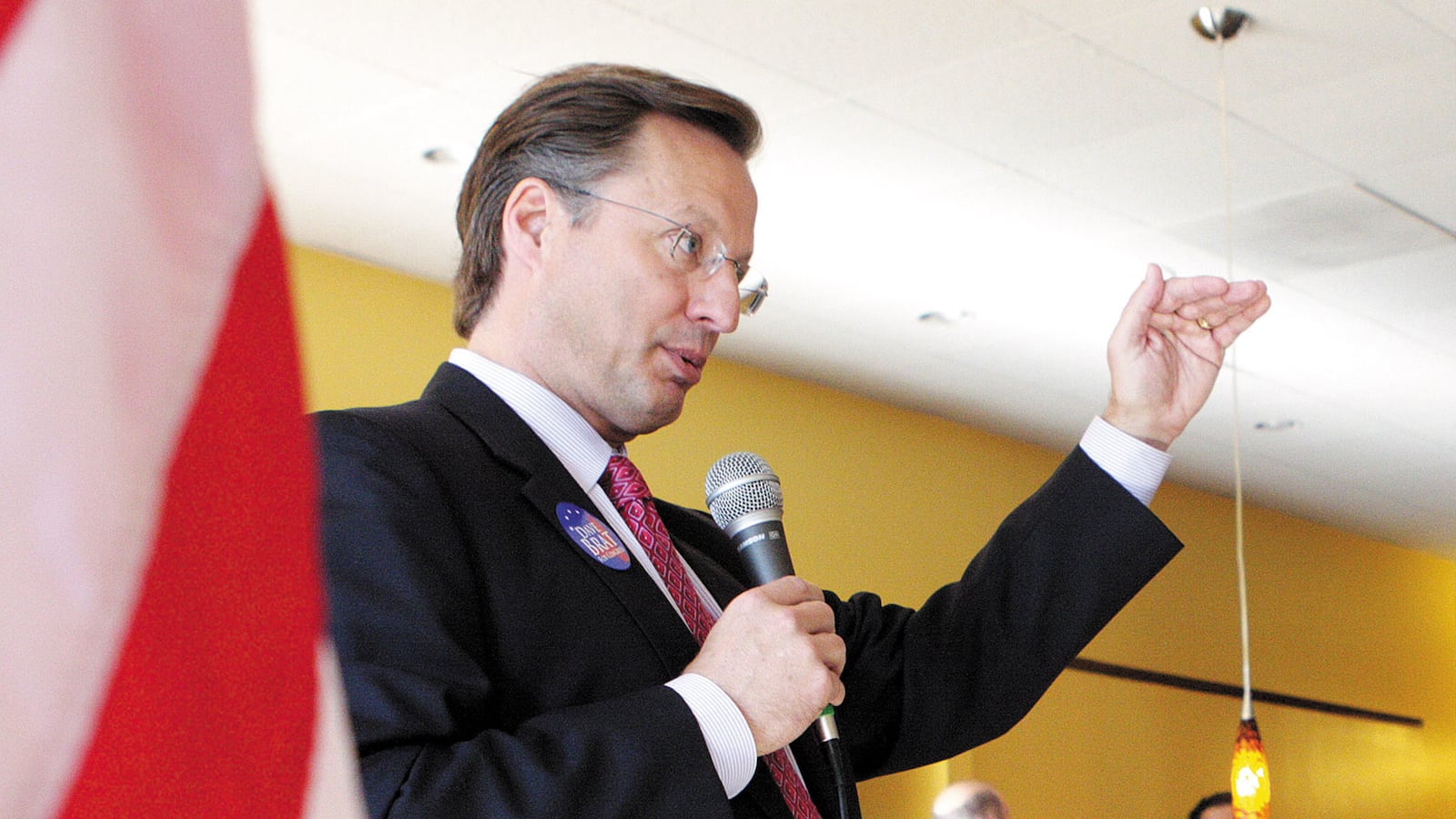Perhaps even more shocking than David Brat’s victory over House Majority Leader Eric Cantor on Tuesday was the news that he’s a professor—hardly a profession common to university-hating Tea Party candidates. Brat’s victory is an impressive feat considering that to most of the people who voted for him, “professorial” is a deadly insult.
But a closer look at Brat’s academic work reveals it has only has the thinnest veneer of scholarship, under which he peddles some rather remarkable arguments. For example, in his paper “Economic Growth and Institutions: The Rise and Fall of the Protestant Ethic?” Brat states:
“Rational man evolved in Athens and look a long hibernation through the Dark Ages. He was awakened in the 16th century by a host of social forces in Western Europe alone. These forces in turn led to the phenomenon of long-run economic growth from 1800-2000 for many countries…Give me a country in 1600 that had a Protestant led contest for religious and political power and I will show you a country that is rich today..”
I am genuinely enchanted that a self-described practicing Catholic thinks that “Rational Man” took a nap from Jesus to the Reformation. (Sorry Augustine, Aquinas, Dante, and Erasmus you must have been just a bad dream.) But I can’t help but notice that this argument is awfully familiar.
Sociologist Max Weber said essentially the same thing (only much, much better) in his classic The Protestant Ethic and the Spirit of Capitalism (1905). Weber was partially correct: Western Europe did enter a period of extraordinary economic growth in the 16th century that was not simultaneously duplicated in other parts of the world. And, yes, those countries in northern and northwestern Europe outstripped other southern (Catholic) countries. These divergences remain significant to this day. Protestantism played a role in the rise of capitalism, the development of modern notions of the individual, and the growth of consumerism.
So it’s not that Brat is entirely wrong. It’s that he’s only selectively right, in a manner that borders on self-parody. In the first place, anyone who uses the term “Dark Ages” to describe the period that gave us the Renaissance might as well just say, “I have a cartoonish view of history and don't know what I'm talking about.”
These not-so-very-dark ages fostered intellectual and cultural forces that themselves led to the Reformation. The invention of the book, systematization of legal codes, and the invention of the printing press—important intellectual developments that played massive roles in the launch of Protestantism—all took place prior to Brat’s golden age.
Even if you wanted to suggest that the Reformation led us to where we are today, this doesn’t mean that this is an unambiguous good. Early modern historian Brad Gregory’s The Unintended Reformation argues that religion is the key element that shaped the Western world, but concludes that Protestantism was the engine of secularization that produced what people like Brat see as our empty, consumerist society.
What about those other cultural forces that emerged outside of Europe during the longue durée of Western sleepytime? They do not seem to have left an imprint in Brat’s crassly simplified version of Weber. India and China? What did those darned Muslims give us other than grammar and algebra? And what are we to make of Japan?
Perhaps rarely-read articles seem like soft targets for public scrutiny. But Brat’s teaching record is surely a good indication of how he would serve in Congress. As Alice Robb noted for The New Republic, Brat’s syllabus for “The Ends of Economic Justice” lists God as the author of the Bible. (I’ll wager God’s not receiving royalties.) Sales aren’t everything though. Sadly, like Plato and Aristotle, the omnipotent deity is merely suggested reading; the required textbook is by none other than Brat himself. Well, it is an economics class.
And it’s here, where he talks about God, that Brat’s cafeteria scholarship and intellectual incoherence really emerges. Brat currently attends a Catholic church yet, in distinction to Pope Francis, he believes that capitalism and Christianity should merge. He described his victory as a miracle yet he quotes Nietzsche as a source for his vision of how Christianity should move forward. That’s right, Nietzsche, who thought that all Christianity was a “slave morality” created by the weak to restrain the strong—i.e., the atheistic, amoral Übermenschen. This isn’t scholarship; it’s cherry picking from a liberal arts reading list with no historical consciousness whatsoever.
Perhaps Brat’s genius is his ability to supply faux intellectual evidence to back up his trite, individualist, consumerist vision of the world. He’s a Catholic peddling Protestant triumphalism. I don’t know if God works through him, but he certainly has the Apostle Paul’s “all things to all people” thing down (1 Cor 9:22).
Most of Brat’s outdated historical theories appeared in journals with-less-than-stellar reputations. Now that he’s running for office, perhaps it’s time for more rigorous peer-review.





